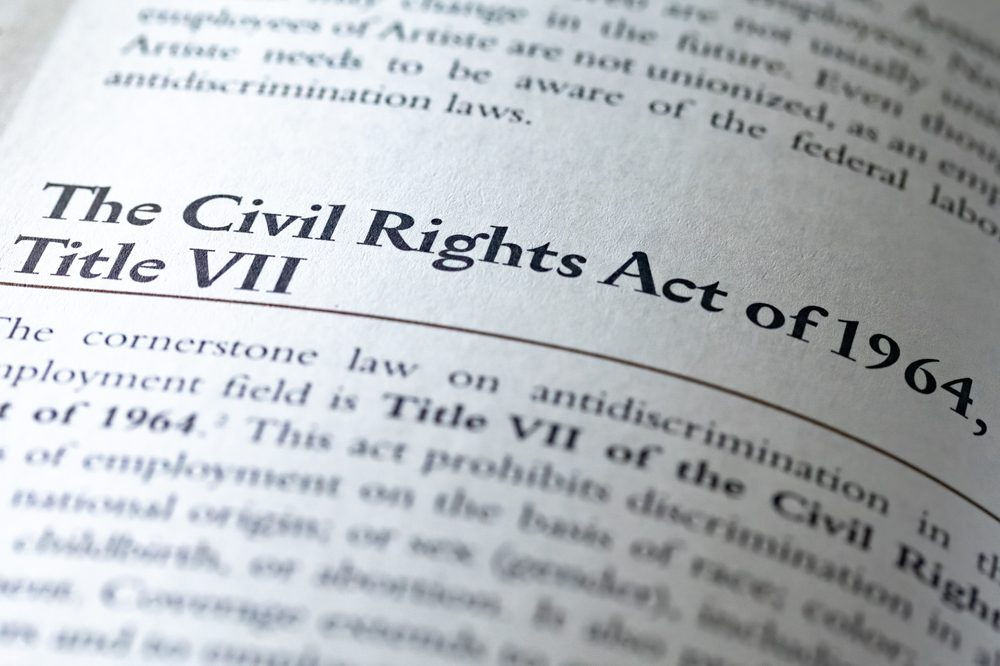
In Groff v. DeJoy, decided on June 29, 2023, the US Supreme Court made a significant change to the standard for religious accommodations for employees under Title VII of the Civil Rights Act of 1964 (for example, employees who wish to take off the Sabbath or wear clothing like a hijab).
Although the Court goes to great lengths to explain that they are not “overruling” prior precedent, and they are simply “clarifying” the rule announced in Hardison v. Trans World Airlines, Inc., 527 F. 2d 33, 42–44 (1975), the Court has effectively overruled the employer-friendly “de minimis” standard that has been applied since 1975 in religious accommodation cases.
Since Hardison, the rule has been that religious accommodations are not required when they result in more than a de minimis cost to the employer (a standard articulated by the US Supreme Court in Hardison).
Now, religious accommodations will not be required when they require “substantial” costs to the employer (an undeniably different standard, also articulated by the US Supreme Court in Hardison).
What is Undue Hardship?
In Hardison, the Supreme Court said that an employee’s request for religious accommodations would constitute an “undue hardship” when it results in more than a “de minimis” cost to the employer. This is the standard the courts have used since 1975.
In Hardison, the Supreme Court also said that an employee’s request for religious accommodations would constitute an “undue hardship” when it results in “substantial” costs to the employer. “Substantial” means just about the opposite of “de minimis,” and the courts have more or less ignored the “substantial” costs language of Hardison (resulting in outcomes favorable to employers).
Now the Court, taking care to explain that they are not overruling Hardison, has clarified that the standard is actually “substantial” costs, not “more than de minimis costs” (which will result in outcomes more favorable to employees seeking the religious exemption).
De Minimis Effect
“More than a de minimis effect” is an incredibly low standard that has resulted in what many would say are bizarre results in religious accommodation cases.
The Court cites several examples, including:
- A finding that it would be an undue hardship on Walmart (the Nation’s largest private employer, with annual profits of over $11 billion) to be required to facilitate voluntary shift trading to accommodate a prospective assistant manager’s observance of the Sabbath. EEOC v. Walmart Stores East, L.P., 992 F. 3d 656, 659–660 (2021),
- A Georgia court’s approval of an Orthodox Jew’s firing for taking off for High Holy Days, Wagner v. Saint Joseph’s/Candler Health System, Inc., 2022 WL 905551, *4–*5 (SD Ga., Mar. 28, 2022),
- A Georgia court’s approval of the firing of a Muslim woman who wore a hijab because the sight of her might harm the business in light of “negative stereotypes and perceptions about Muslims,” Camara v. Epps Air Serv., Inc., 292 F. Supp. 3d 1314, 1322, 1331–1332 (ND Ga., 2017),
- An Ohio court’s approval of the termination of a Muslim employee when his religious services conflicted with “two hours” of training a week during a month of daily training, El-Amin v. First Transit, Inc., 2005 WL 1118175, *7–*8 (SD Ohio, May 11, 2005),
- A Georgia court’s finding that hiring a Sikh man as a restaurant manager would be an undue hardship because his beard would have conflicted with “customer preference,” EEOC v. Sambo’s of Ga., Inc., 530 F. Supp. 86, 91 (ND Ga., 1981).
According to the Court, the “de minimis” standard is insufficient to establish “undue hardship,” and, despite nearly 50 years of working, is unworkable.
Undue Hardship Means What it Says
“Undue hardship” means a “substantial burden” “in the overall context of an employer’s business.”
How do we know what an undue hardship is? “Undue hardship” means what it says:
What is most important is that “undue hardship” in Title VII means what it says, and courts should resolve whether a hardship would be substantial in the context of an employer’s business in the common-sense manner that it would use in applying any such test.
A “hardship” is “something hard to bear,” Random House Dictionary of the English Language 646 (1966) (Random House), “something that causes or entails suffering or privation,” Webster’s Third New International Dictionary 1033 (1971) (Webster’s Third), “[e]xtreme privation; adversity; suffering”, American Heritage Dictionary 601 (1969) (American Heritage), or “privation, suffering, adversity,” Black’s Law Dictionary, at 646.
Under any definition, a “hardship” is significantly more than “de minimis,” and the modifier “undue” means that the standard is something even greater than just hardship – the hardship must be “excessive” or “unjustifiable,” Random House 1547, Webster’s Third 2492 (“inappropriate,” “unsuited,” or “exceeding or violating propriety or fitness”), American Heritage 1398 (“excessive”).
When evaluating a request for reasonable accommodations and what constitutes an undue hardship, courts must take “into account all relevant factors in the case at hand, including the particular accommodations at issue and their practical impact in light of the nature, size, and operating cost of [an] employer.”
Importantly, the Court notes that coworkers’ or the community’s dislike of a religious practice or expression is not relevant – bias or hostility to a religious practice or religious accommodation is not an undue hardship or a defense to a reasonable accommodation claim.
Please feel free to contact any of our Murray Lobb attorneys if you have questions regarding religious accommodations or how the courts will interpret the term “undue hardship.” We also remain available to help you with all your general business, corporate, construction, and estate planning needs.
